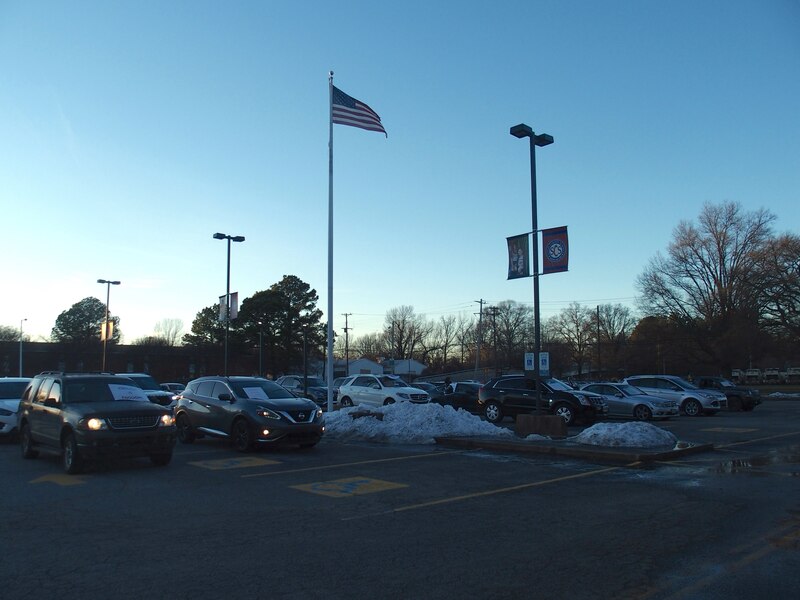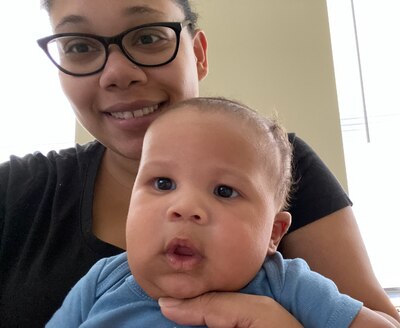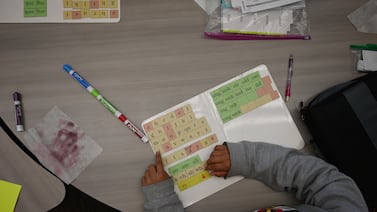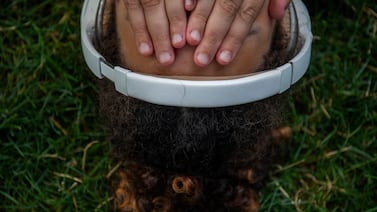Some Memphis teachers, expected back in the classroom on Thursday, are airing their concerns about Shelby County Schools’ back-to-school plan. Others have decided to resign rather than go back to campus, after Superintendent Joris Ray reversed his promise that teachers could choose whether to return to school buildings while COVID-19 remains widespread.
In the two weeks since Ray’s reversal, Shelby County Schools and the local health department have arranged for staff to receive their first COVID-19 vaccine dose this week — a development that Ray and teacher leaders said is crucial to building employees’ confidence about returning.
The district’s plan has already been pushed several days, following the city’s largest snowfall in half a century, which burst pipes, drained the reservoir, and put the area under a boil water advisory. Teachers were originally scheduled to return to school buildings Monday. Students are to begin returning on March 1.
The district’s new plan meant that teachers had less than two weeks to arrange for child care and upended online learning plans that Ray had only recently extended.
And despite the district’s assurances that they would work with employees to find alternate working conditions if needed, Shelby County Schools has not specified who would qualify for work-from-home exemptions. Teachers have also reported being turned down even if they or someone they care for is at risk for serious COVID-19 complications. District officials did not respond to Chalkbeat’s question about if teachers who don’t return this week would face consequences.
“The trust has been broken,” said Jolie Madihalli, the president of the Memphis-Shelby County Education Association, which represents most Shelby County Schools teachers. “They are upset, and they feel like their voices have not been heard.”
About 25 educators from Madihalli’s group drove by the district’s central offices Tuesday evening, ahead of a school board meeting, to share their concerns about building cleanliness and teacher accommodations. Teachers held signs that read “Teachers Matter” and “Our Voices Count” and honked their horns as they drove around the parking lot.

Shelby County Schools has avoided most of the tension with unions, compared with other districts nationwide, because Tennessee lawmakers stripped educators of their bargaining rights a decade ago. But teacher buy-in is still crucial to school reopening plans.
Recent research suggests that the degree to which schools further the spread of the coronavirus depends on the existing rate of community spread. Researchers also caution that contact tracing may miss some COVID-19 cases, and note that districts lack systematic “surveillance” testing that would provide a more complete picture of school infection rates.
Before the announcement, state lawmakers and Gov. Bill Lee pressured Ray to offer an in-person option to parents — and threatened to cut funding if he didn’t. Parents can still choose to keep their children remote. From their classrooms, some teachers will be instructing students learning in person and virtually.
Although some teachers say Ray did all he could to protect them, others contend that communication about reopening has been lacking — and some have decided to resign rather than return.

Simone Anderson, a teacher at Raleigh-Egypt Middle, decided to quit the day after Ray’s announcement. She said the reopening plan was “rushed” and that basic necessities, such as hot water and windows that open, are missing. She also had just returned from maternity leave last month and said she doesn’t plan to get vaccinated while nursing her son. Few vaccine trials included pregnant or breastfeeding women.
“Going back to the classroom wasn’t worth putting myself and my son at risk,” she said. “I always say family comes first. I can’t be there for other people’s children if I can’t be there for my own.”
After she turned in her resignation, Anderson set aside 10 minutes at the end of her virtual class to break the news to her students. She didn’t want them to hear it from anyone else. A few cried. One sent her a private message: “You are a good mother to be making that sacrifice.”
“It really pains me that I had to make that choice to leave,” Anderson said.
But not all teachers are going to be able to make that decision, especially amid a pandemic-induced economic downturn. Shelby County Schools officials did not provide an estimate of how many teachers have quit, requested accommodations, or taken a leave of absence in the wake of the reopening plan change.
Maintenance staff installed upgraded air filters that are better than those in most schools, but still fall short of federal guidance. Ray plans to use some new federal relief money on purifiers to better capture airborne viral particles.
So far this week, students have been working on assignments independently instead of joining live classes online as teachers prepare to return to school. On Thursday, teachers will learn which students will be assigned to their classroom, how lunches will be served, how often teachers and students will change rooms, and how to prepare their classrooms for social distancing. All students who return to buildings, about a third of the district’s 88,000-person enrollment, will continue learning through video conferencing and each receive a headset.
The district had previously planned to reassign teacher assistants, behavior specialists, central office staff, and additional classroom monitors hired by a staffing agency to supervise students where a teacher chose to remain remote. About 83% of teachers had planned to work remotely, according to survey results released in mid-December.
“I never understood how they were going to do it in the first place. I don’t think [Shelby County Schools] realized how many teachers were not going to come back,” said Amy Dixon, a Snowden School kindergarten teacher who originally chose to work remotely only because she didn’t want to sit in a room of students still learning on a tablet.
Dixon’s kindergarten students, most of whom don’t know what it’s like to spend the whole day in a classroom, need a lot of support from parents or grandparents while learning virtually at home — even with simple tasks such as finding page numbers. She’s looking forward to providing some of that support in person to students who return, but worries about the area’s poor track record on contact tracing.
“Teachers have been working hard all along. Virtual teaching is not a vacation. It is not something that any teacher I’ve known has taken lightly,” Dixon said.

Dexter Britt, a history teacher at Kingsbury High, said he is concerned that students who return will be disillusioned: “We’re going to be doing the same thing we could have done at home.” He said that he doesn’t blame the district for the situation, but worries about high-risk colleagues who haven’t received exemptions.
“I know teachers are not the only people in America who have to go to work in these circumstances,” Britt said. “I’m not as concerned about my health but my wife’s health and other people who could get it because of me.”
Those concerns and others erupted during a recent virtual teachers meeting, where district leaders laid out plans. Many teachers said the presentation was a repetition of previous meetings with their principals and lacked detailed answers to their remaining questions. The livestream’s chat box, which allowed participants to remain anonymous, was flooded with complaints about schools lacking hot water even before the pandemic and worries that classrooms could not handle social distancing.
One commenter said: “I am sitting here in tears because I’m terrified!”
Anderson said that proponents of reopening campuses often dismiss teachers’ concerns.
“They don’t realize that teachers are not robots. We are humans too who are going through this pandemic, too,” she said. “It’s a heavy load.”







